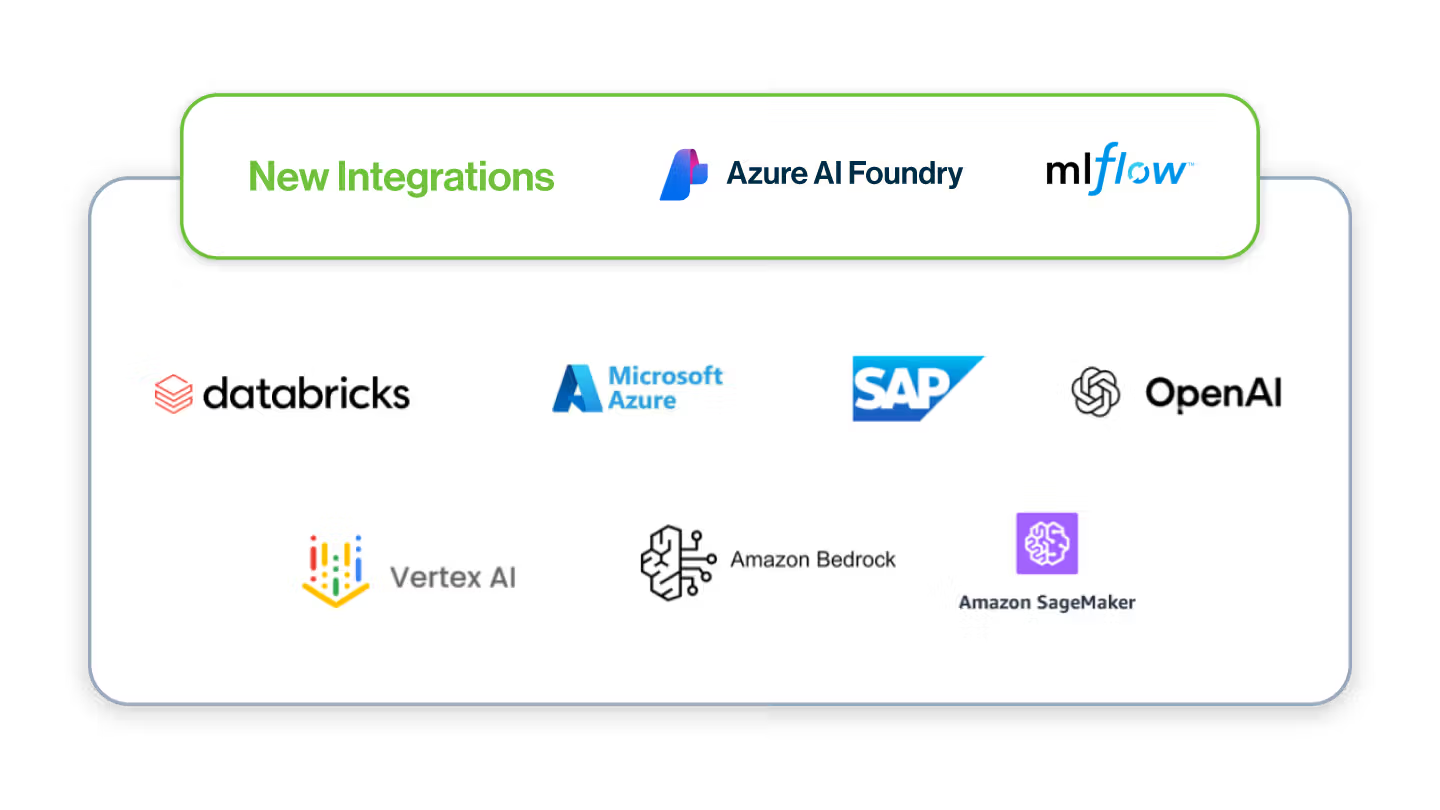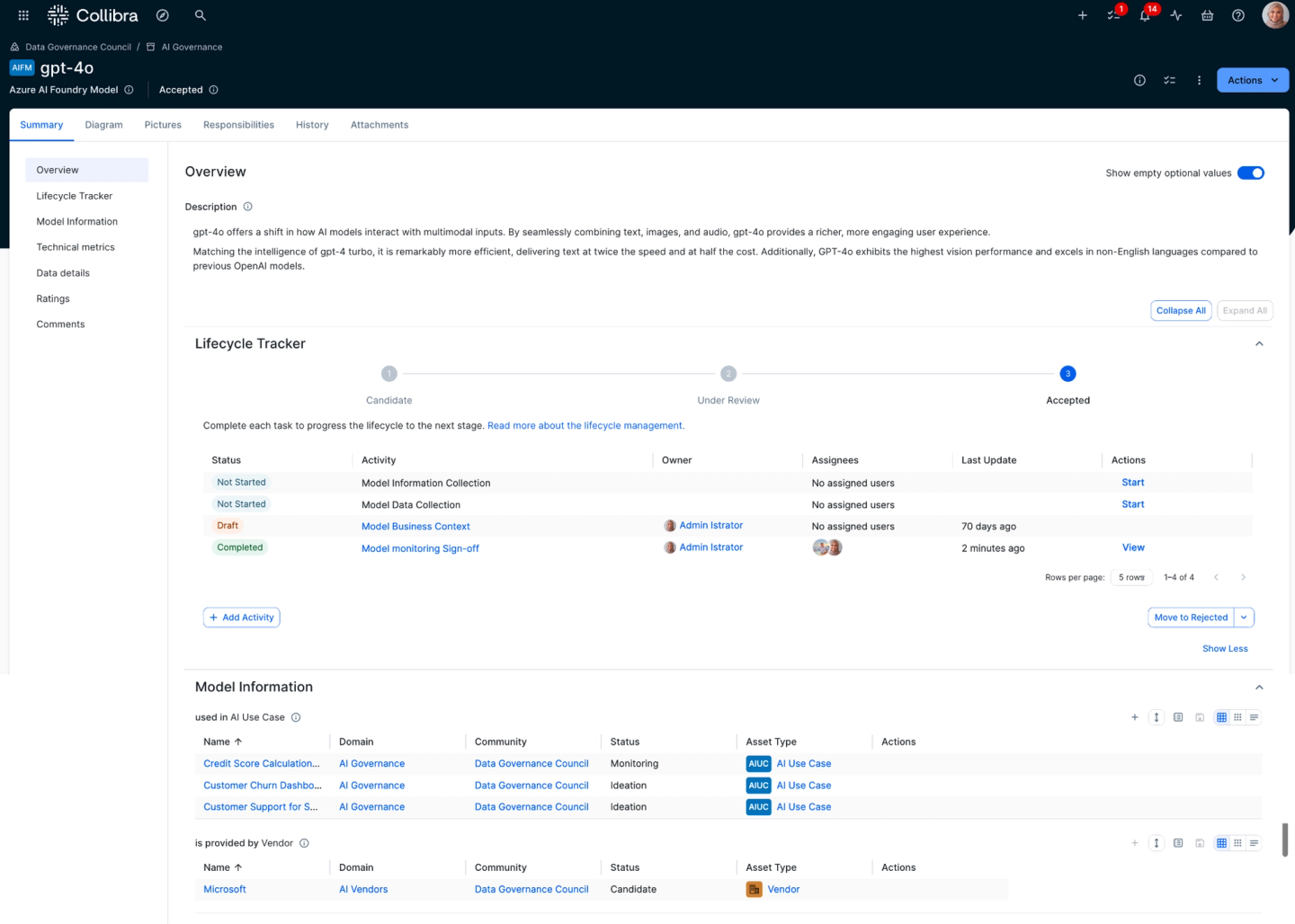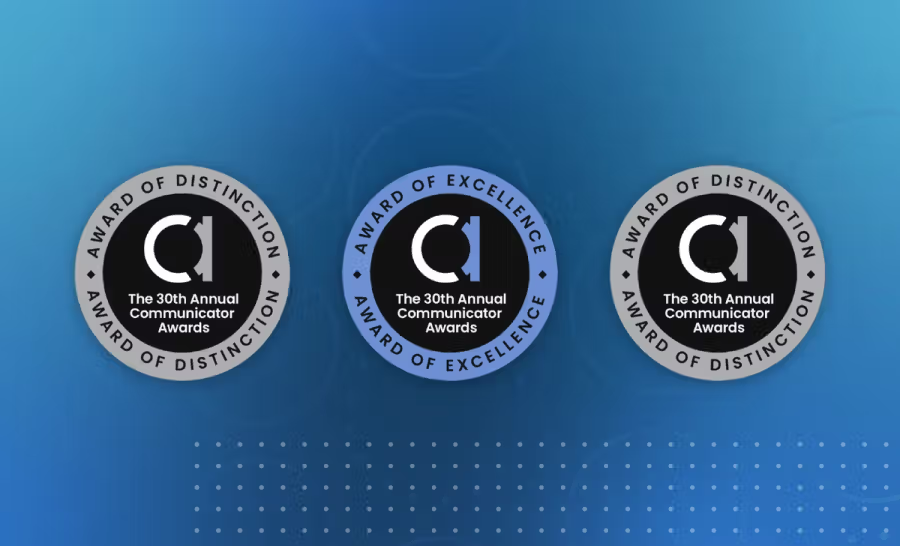Integrating Collibra with Azure AI Foundry and MLflow: New integrations expand scope of model governance

Modern AI development is increasingly decentralized and multi-platform. Teams use tools like Azure AI Foundry and MLflow to develop and deploy models at speed. But without proper governance, organizations risk building black-box models with no lineage, ownership, or compliance. That’s why Collibra is expanding its integrations to support both Azure AI Foundry and MLflow—allowing organizations to bring their model metadata into a governed, traceable, and enterprise-ready registry. This, in addition to a plethora of already existing AI Governance integrations with Azure Machine Learning, DataBricks, AWS Sagemaker and AWS Bedrock.
What’s new: Azure AI Foundry and MLflow integrations
Collibra now integrates directly with Azure AI Foundry and MLflow, two widely adopted platforms for model development and management. These integrations enable organizations to ingest metadata from model experiments, training runs, and pipelines into Collibra—creating a governed model registry with end-to-end traceability.
Rather than treating governance as an afterthought, these integrations embed it into the ML lifecycle. Models created in Azure AI or MLflow can now be automatically registered, enriched, and linked to the broader AI governance fabric within Collibra.
How these integrations help
As organizations scale AI initiatives, they face mounting complexity. Models are often developed in silos with disconnected tooling, fragmented documentation, and limited visibility for stakeholders. This makes it difficult to ensure traceability, compliance, or operational readiness.
What these integrations solve for
- No centralized visibility or inventory of models
- Poor linkage between models and business AI use cases
- Inconsistent lineage and documentation
- Audit and regulatory risk
- Limited collaboration between technical and business teams

Expanded ecosystem of AI platform integrations now includes Azure AI Foundry and MLflow
How the Azure AI Foundry and MLflow integrations work
The integrations with Azure AI Foundry and MLflow are built on open APIs that automatically collect and harmonize model metadata into Collibra. For MLflow, Collibra connects to the tracking server and model registry to capture experiment parameters, evaluation metrics, and other model artifacts. For Azure AI Foundry, Collibra extracts metadata from registered models from a GenAI and Classical AI perspective, so that model deployments can be properly registered in Collibra. Capturing the model deployments over Azure AI Foundry and MlFlow is essential, as these are the models that will be used in your AI Use Cases.

Overseeing Azure AI Foundry Models into Collibra AI Governance
Every deployed model will include metadata like: Model name, version, owner, hyperparameters, model quality metrics like recall and precision, and operational metrics like token rate limits.
Model deployments will run on data at a certain moment in time, here we allow you to connect the relevant datasets / data products towards your ai model deployments as training, inference or output data.
Once ingested, this metadata is mapped to Collibra’s governance model, where it can be enriched with business context, ownership, data lineage, and policy assignments. Users can trace a model’s full lifecycle and understand how it fits into larger AI use cases.
In addition, Collibra offers a flexible governance model allowing the AI Governance Steward to expand/reduce our out-of-the-box operating model and to add, for example, custom metrics that were created in the platform.

Why you should be excited
This integration helps users across the organization from data scientists to AI leaders:
For Data Scientists: -Continue using Azure and MLflow—governance is automated in the background - Focus on model innovation, not manual documentation
For MLOps Engineers: Centralize model tracking and lifecycle management - Improve collaboration and oversight across platforms
For Risk & Compliance Teams: Ensure models in production are compliant and auditable - Automate lineage and policy tracking for regulatory readiness
For AI & Data Leaders: Gain visibility across teams and tools - Align AI development with business and compliance objectives
And helps solve for key use cases such as:
- Control all model development status built and deployed by AI teams
- Register all fraud models from MLflow for centralized risk review
- Govern Azure AI healthcare models linked to regulated diagnostics –
- Monitor lineage and KPIs for all customer-facing models across clouds
Key takeaways about the Azure AI and MLflow integrations
The new integrations with Azure AI Foundry and MLflow extend Collibra’s model governance to the platforms where models are actually built and deployed. They bring the full power of Collibra’s metadata, policy, and lineage capabilities to every model—automatically and consistently.
- Collibra now supports direct integration with Azure AI Foundry and MLflow
- You can trace, govern, and operationalize model metadata from training to deployment
- These integrations enable responsible, scalable AI across tools and teams
Where to learn more
To explore how Collibra connects with Azure AI and MLflow:
- Read our detailed integration guide (coming soon)
- Watch the integration demo video
- Join our Masterclass on AI model governance in multi-platform environments
- Talk to your CSM for a sandbox demo or integration walkthrough
Related articles

AIMay 21, 2024
Collibra wins prestigious 2024 Communicator Award for AI Governance campaign

AIJuly 15, 2024
How to observe data quality for better, more reliable AI

AINovember 13, 2023
AI ethics and governance: responsibly managing innovation

AI GovernanceFebruary 28, 2025
AI agents: Build or buy, governance remains critical
Keep up with the latest from Collibra
I would like to get updates about the latest Collibra content, events and more.
Thanks for signing up
You'll begin receiving educational materials and invitations to network with our community soon.


